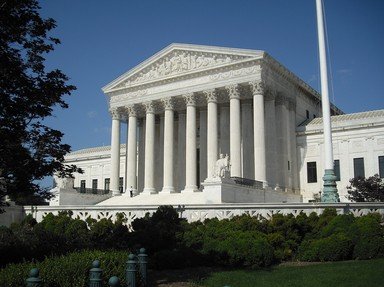Quiz Answer Key and Fun Facts
1. Ruth Bader Ginsburg, dissenting: "Throwing out preclearance when it has worked and is continuing to work... is like throwing away your umbrella in a rainstorm because you are not getting wet."
2. Samuel Alito, dissenting: "In order to have a society in which public issues can be openly and vigorously debated, it is not necessary to allow the brutalization of innocent victims like petitioner."
3. Earl Warren, in the majority: "Separate educational facilities are inherently unequal."
4. Stephen Breyer, dissenting: "It is not often in the law that so few have so quickly changed so much."
5. Oliver Wendell Holmes Jr., in the majority: "The most stringent protection of free speech would not protect a man in falsely shouting fire in a theatre."
6. John Paul Stevens, dissenting: "Although we may never know with complete certainty the identity of the winner of this year's Presidential election, the identity of the loser is perfectly clear."
7. Sandra Day O'Connor, in the plurality: "Health regulations that have the purpose or effect of presenting a substantial obstacle to a woman seeking an abortion impose an undue burden on the right."
8. Anthony Kennedy, in the majority: "The State cannot demean their existence or control their destiny by making their private sexual conduct a crime."
9. Neil Gorsuch, in the majority: "Those who adopted the Civil Rights Act might not have anticipated their work would lead to this particular result. But the limits of the drafters' imagination supply no reason to ignore the law's demands."
10. Elena Kagan, dissenting: "Of all times to abandon the Court's duty to declare the law, this was not the one."
Source: Author
Joepetz
This quiz was reviewed by FunTrivia editor
stedman before going online.
Any errors found in FunTrivia content are routinely corrected through our feedback system.
